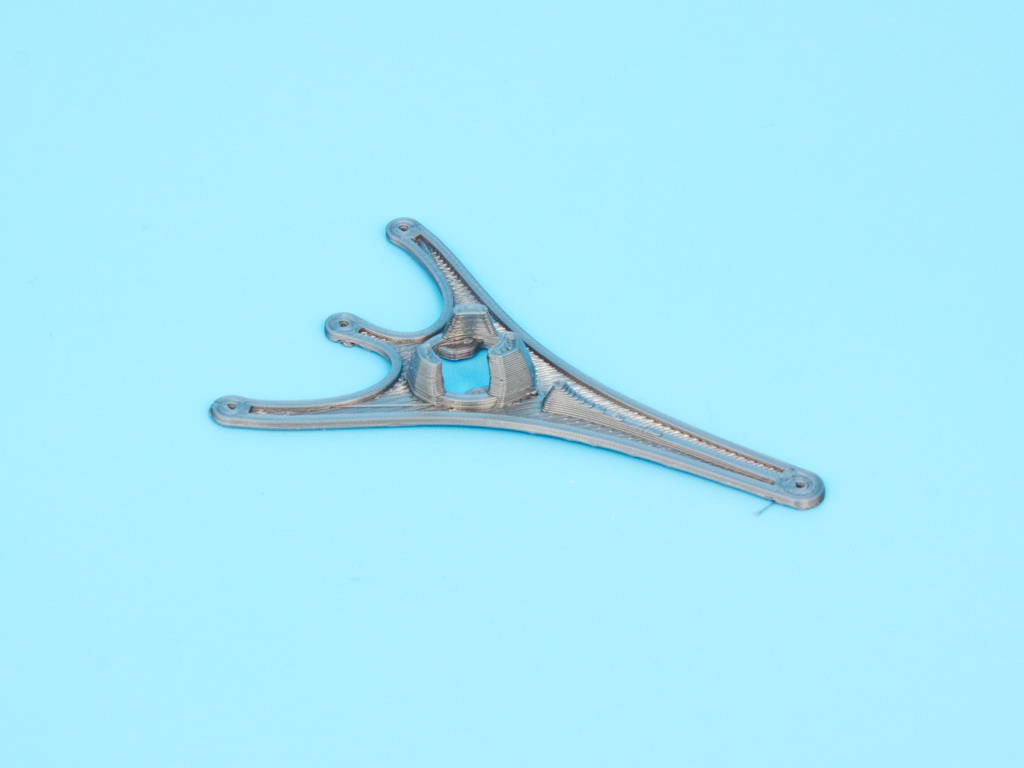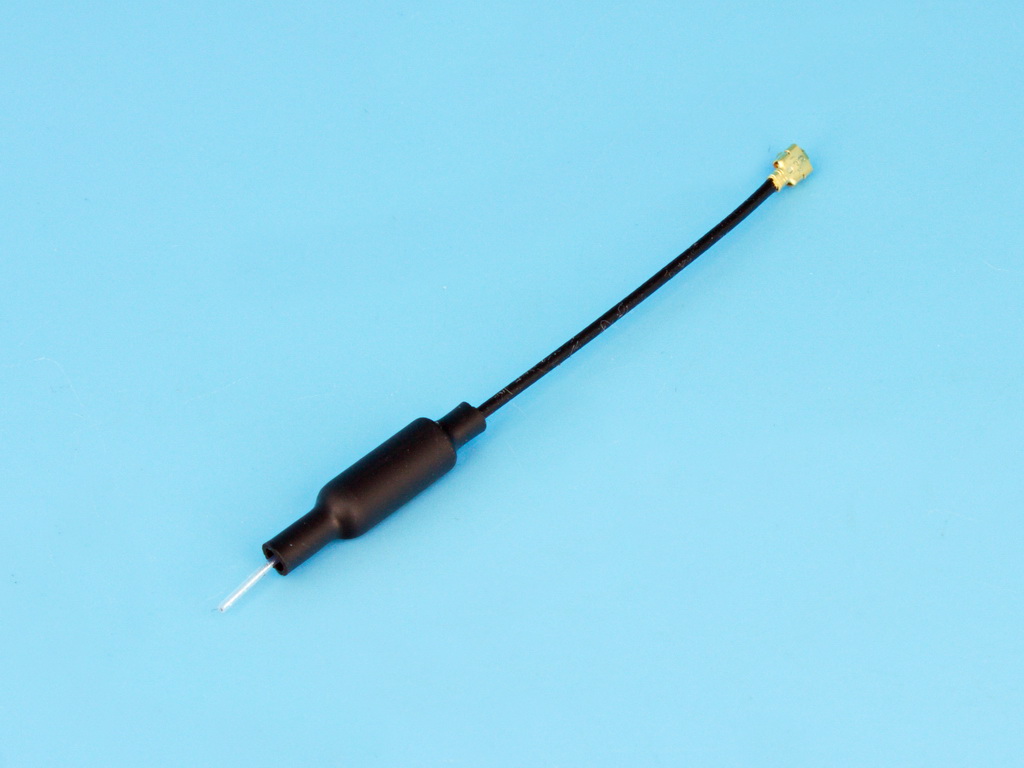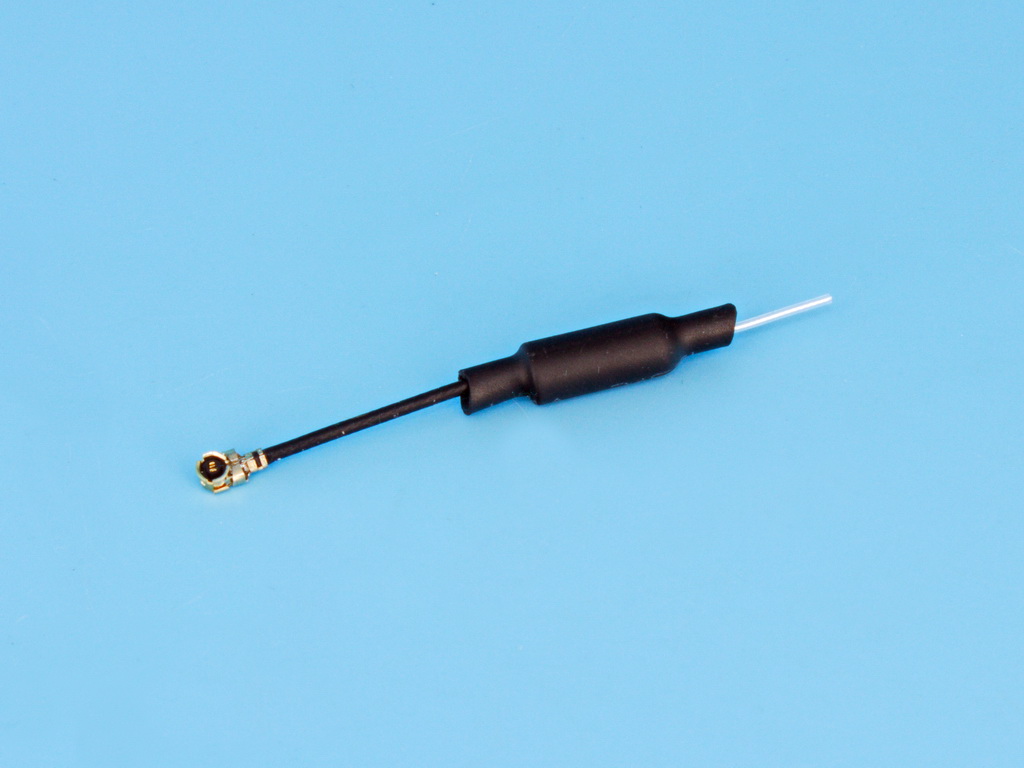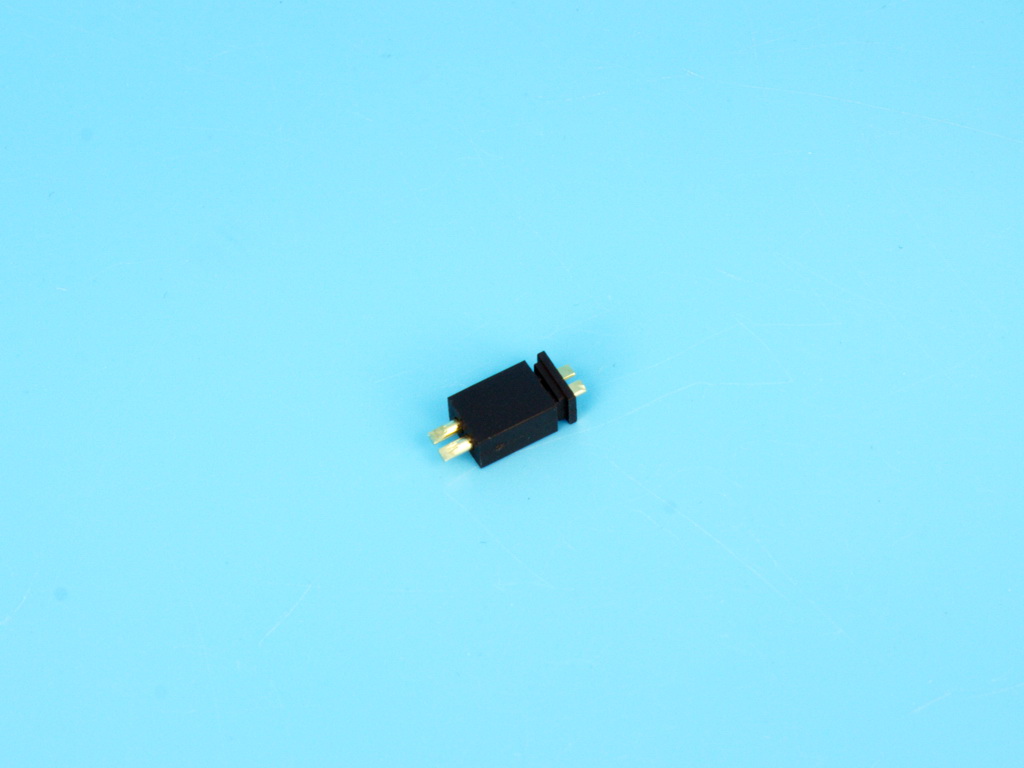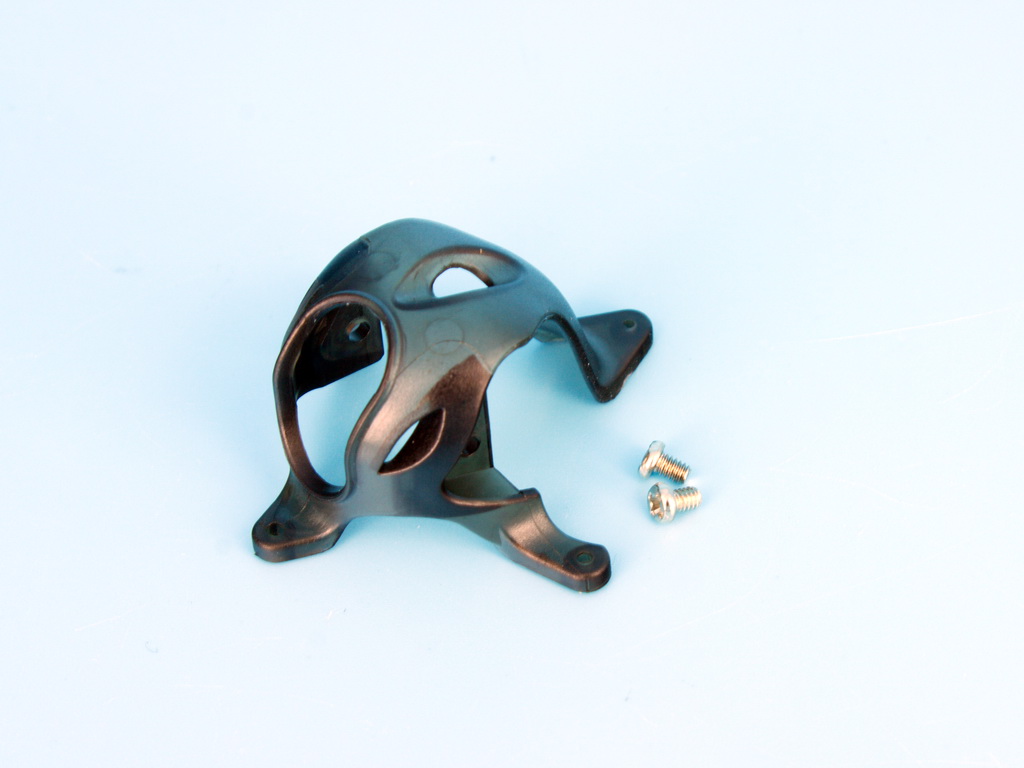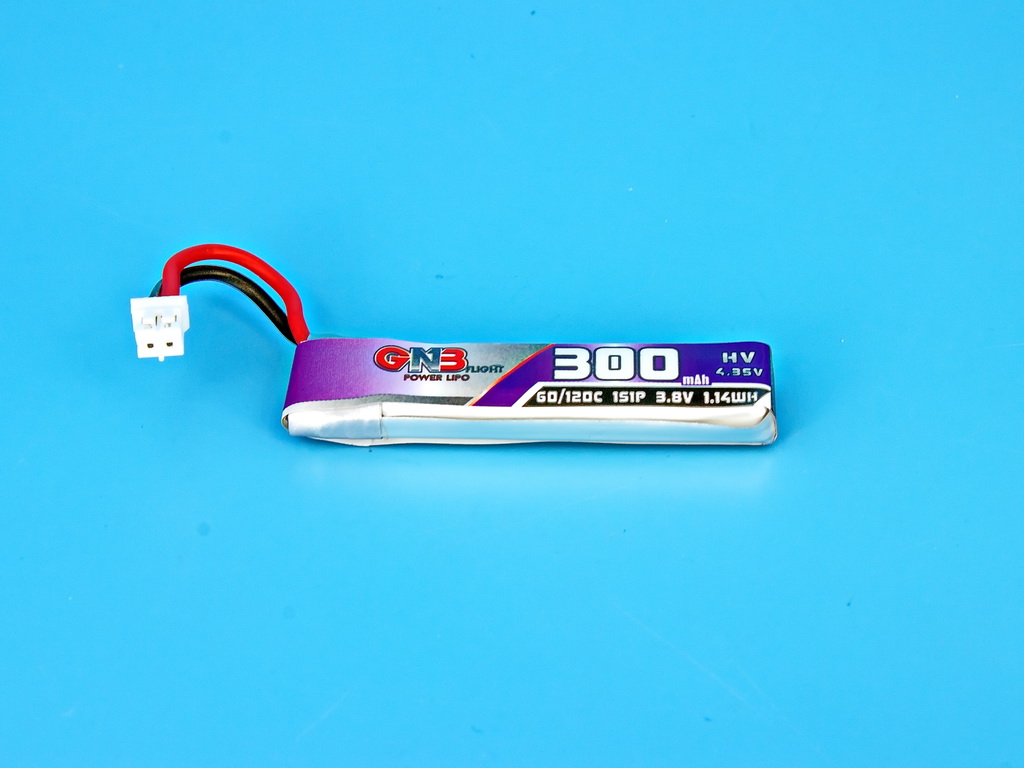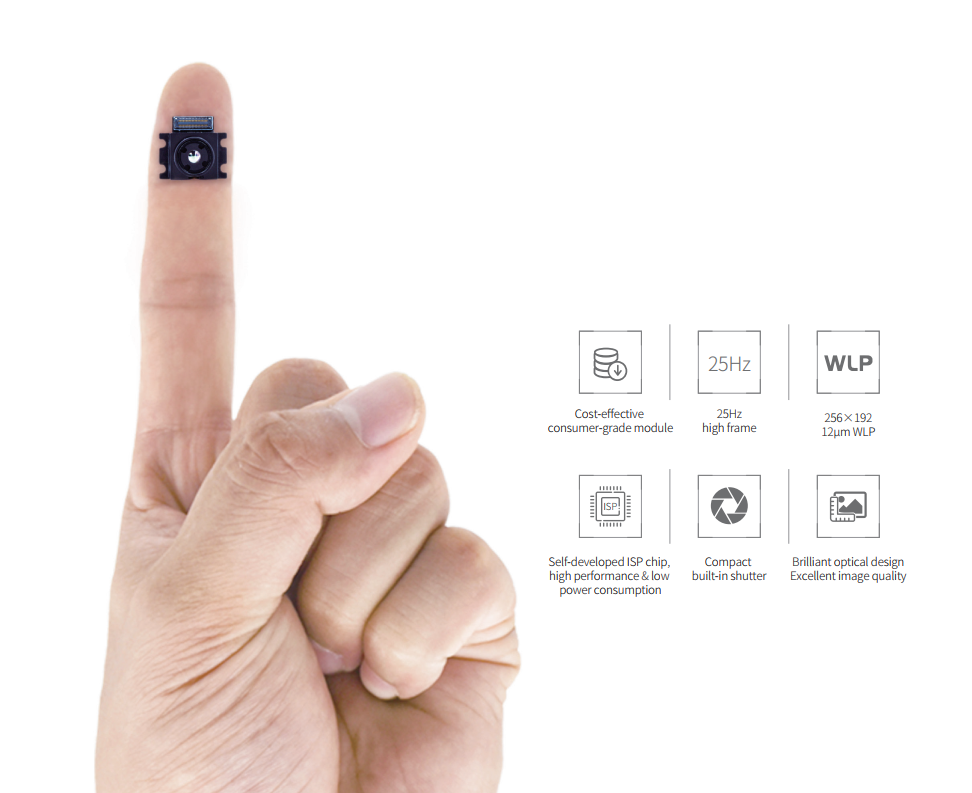Product overview
- Part Number
- GEPRC 4S 530mAh 90/180C HV 3.8V/4.35V LiPo Battery
- Manufacturer
- GEPRC
- Product Category
- POWER, BATTERY
- Update Date
- 2024-05-20
Description
Detailed Information
Summary:
This battery was made for providing more power for 2-3 inch drone
Comparing to ordinary battery,the high voltage battery have more energy,means in same usage environment your flight time will be increase a lot.Because the high voltage battery have more energy density,so it have more discharge rate.In same capacity,high voltage battery have smaller volume and lighter weight.
Higher discharge rate can make your drone more powerful.
Feature:
- More Energy
- More Usage time
- More Lightweight
- More Discharge Rate
Specification:
- Model:GEP 4S 530mAh
- Capacity:530mAh
- Configuration: 4S1P
- Nominal Voltage: 15.2V
- Type: LiHV
- Watt: 8.06WH
- Weight: 51.2g
- Dimension: 17*25*64.5(mm)
- Max cont. discharge (C-rate/current): 90C
- Max Burst (C-rate/current): 180C
- Charge Connector: XT30
- Discharge Connector: XT30
- Recommended charging current: 1C
- Maximum charging current: 3C
- Working Temperature Charge: 0-45°C
- Working Temperature Discharge: -20-60°C
- Working Humility: 65%RH +/-20%
- Storage Temperature: -20-35°C
- Storage Humility: 65%RH +/-20%
- Life Cycle: 300+times
- Application: Toys,Boats,Quadcopter
Include:
- 1 x GEPRC 4S 530mAh 90/180C
Warning:
- Please read the battery parameters and instructions in detail before use.
- Please don’t charge the battery unattended.
- Do not overcharge (select the correct battery type before charging, the full charge voltage of single cell of LiPo battery is not more than 4.2V, and the full charge voltage of single cell of LiHV battery is not more than 4.35v).
- Do not over-discharge (the single-cell discharge voltage of LIPO and LiHV batteries cannot be lower than 3.5V, over-discharging will damage the battery and cause swelling).
- Don’t place the battery close to open flames or fire sources.
- Keep the battery away from flammable materials when charging
- Please carefully check the battery voltage and capacity before charging and use
- It is forbidden to reverse the positive and negative poles of the battery (to avoid short circuit)
- Do not directly touch the leaking battery. If you accidentally touch the electrolyte, please wash it with clean water immediately. If it is serious, please consult a doctor immediately.
- Please dispose of the ruptured battery in time and do not reuse it
- If you need to store the battery for a long time, please maintain the battery voltage at a single-cell 3.80V-3.85V. Please ensure that a charge-discharge activation is performed within 3 months to maintain the stability of the battery.
- It is forbidden to disassemble and reassemble the battery or change the wiring (it is easy to cause short circuit and burning).
- If a collision occurs during use, please remove the battery. Check carefully whether the battery and connector are normal.
- Please charge at a temperature of 0-45℃ (make sure the charging environment is cool and ventilated, the battery will generate a certain amount of heat after use and during the charging process, and the battery that has just been used is allowed to stand and wait for the temperature to be below 45℃ before charging).
FAQ:
Q:What is High Voltage Battery?
A:Voltage of High Voltage Battery higher than ordinary battery.The maximum charging voltage of high voltage battery is 4.3V,and ordinary only 4.2V.
Q: What is the appropriate charging rate C for the battery?
A: The charging rate supports up to 3C, and it is recommended to use 1-1.5C, which will basically have no effect on the service life of the battery.
Q: What kind of charger is used to charge the battery?
A: It is recommended to use the HOTA D6 PRO charger, ISDT 608AC charger and ToolkitRC M6D charger.
Price & Procurement
Associated Product
-
-
-
-
-
-
Capacity: 300 mAh Nominal voltage: 3.8 V Maximum discharge current: 60C ...
-
DarkStar20: So light, it makes feathers look overweight. Perfect for sneaking th ...
-
With 20A Blheli_s ESCs and an integrated ELRS RX, this FC lifts your drone’s per ...
-


